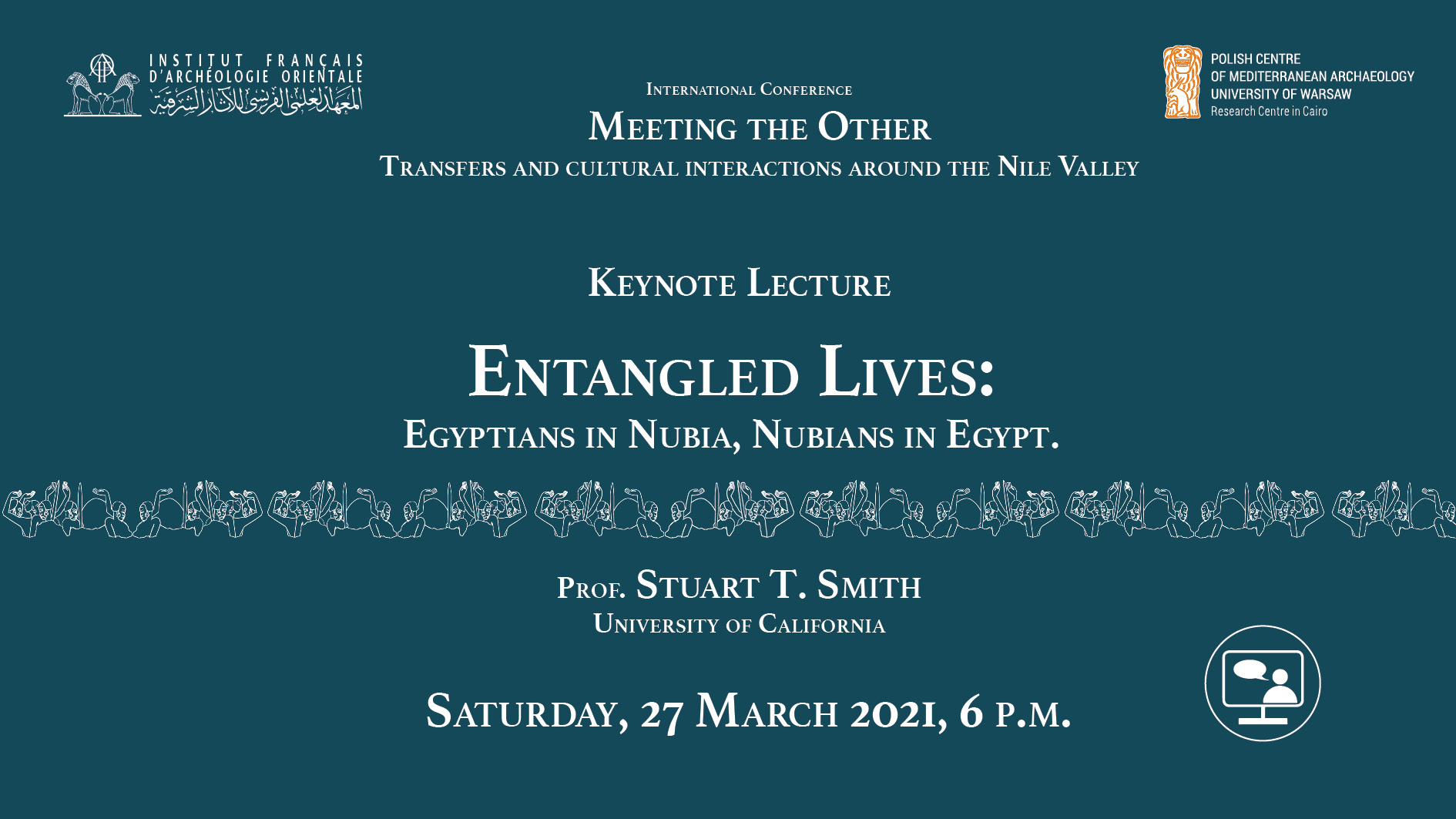Manifestations scientifiques
Abonnez-vous à la … Subscribe to the Mailing list :

Keynote Lecture
Le samedi 27 mars 2021 à 18h00 (heure du Caire), IFAO 
Entangled Lives: Egyptians in Nubia, Nubians in Egypt
Prof. Stuart T. Smith
Langue : anglais.
In the framework of the International conference : Meeting the Other: Transfers and cultural interactions around the Nile Valley jointly organized by the IFAO and the PCMA a public online keynote lecture will be given by Prof. Stuart T. Smith (University of California, Santa Barbara) at 6 p.m. on Saturday 27 March 2021.
The lecture will be on Zoom application and will be followed by a discussion with the public.
LINK TO ATTEND
Abstract:
In spite of the Egyptocentric emphasis on Egypt’s cultural impact on Nubia, Nubian culture entangled with and influenced Egyptian society through an accumulation of individual interactions both at home and in the colonial communities founded during the Middle and New Kingdom (c. 2040-1070 BCE) and after the conquest of Egypt by the Kushite dynasty (c. 747-656 BCE), which is itself usually thought of as completely “Egyptianized.” Nubian cultural impacts varied over time within Egypt and in different parts of the empire. This paper takes a regional approach that compares and contrasts Nubian influence on Egyptian society in Nubia and Egypt during these three periods. Nubians in Egypt to some extent assimilated, but continued to be represented in complex ways and with some traditional Nubian features. More importantly, Nubians deeply influenced Egyptian cultural practices in specific social contexts, in particular connected with the military, but also the theology of Amun-Re and aspects of royal ideology. Although Egyptian colonists in both Upper and Lower Nubia maintained a façade of Egyptian-ness, Nubian cultural threads wove their way into colonial society, in particular in the arena of foodways and household ceramic production through a likely gendered dynamic. Religious practices in the colony were also profoundly affected by Nubian beliefs and practices, some features of which were exported to Egypt. Nubian influence was felt both at the household level and in the layout and theology that underlay the massive temples built during the New Kingdom. This entangled colonial culture contributed to the rise of the Kushite, 25th Dynasty, which ruled Egypt for about a century and made its own contributions to Egyptian theology and kingship ideology. Throughout Egypt and Nubia’s long relationship, cultural influence was mutual and often subtle instead of unidirectional and monolithic. Entanglement provides a useful model to understand intercultural interactions between the two cultures, in particular understanding how Nubian civilization came to influence Egypt. Professor Stuart T. Smith
Professor Stuart T. SmithDepartment of Anthropology
Director Institute for Social Behavioral & Economic Research
University of California, Santa Barbara

